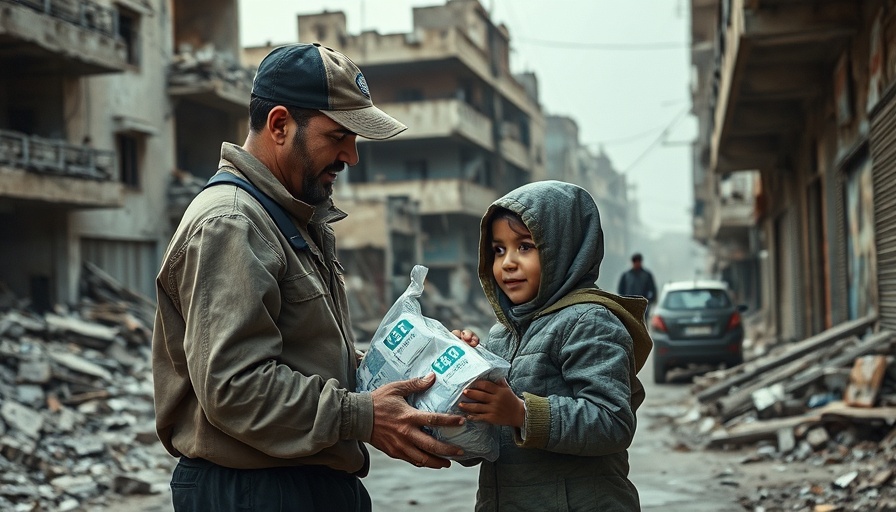
Gaza Crisis: A Discussion on Global Responsibility
The ongoing crisis in Gaza has prompted urgent discussions among world leaders. During a recent meeting in Scotland, British Prime Minister Rishi Sunak confronted former President Donald Trump about the dire humanitarian situation unfolding in the region. Both leaders acknowledged the urgency required to address this escalating issue, which has significant implications not just for the Middle East, but for global stability and international relations.
The Humanitarian Crisis in Focus
In the past few weeks, reports have surfaced detailing the heart-wrenching conditions faced by civilians in Gaza. From shortages of food and medical supplies to widespread displacement, the situation is becoming increasingly desperate. As geopolitical tensions rise, it becomes critical for nations to come together and take meaningful action. Prime Minister Sunak stressed that the responses must not only be swift but also sustainable and ethical, calling for international cooperation to deliver humanitarian aid and support diplomatic negotiations.
Understanding Multiple Perspectives
The dialogue between Sunak and Trump highlights the differing perspectives on the U.S. role in foreign conflicts. While Trump maintained a strong stance on prioritizing U.S. interests, Sunak emphasized the importance of a humanitarian approach. This divergence raises essential questions about how leaders prioritize national interests against the backdrop of global humanitarian needs. Each viewpoint sheds light on the complexities of international diplomacy and public accountability.
Future Implications for U.S. Policy
As the situation in Gaza evolves, it is likely that U.S. foreign policy will be scrutinized both domestically and internationally. We may witness attempts to reshape strategies that address both humanitarian and strategic concerns. Previous administrations have faced challenges in balancing military engagement with humanitarian assistance, and this ongoing dialogue could lead to emerging policies that are more aligned with a collaborative international effort.
The Role of Media in Shaping Perceptions
Media coverage plays a pivotal role in shaping public perception about events like the Gaza crisis. With various news outlets reporting different narratives, it is vital for audiences to seek out comprehensive and credible sources. As individuals engage with news articles, understanding the biases and perspectives of the outlets can enhance one’s grasp of the complexities involved in international crises.
Engaging the Public in Global Issues
Public awareness and engagement are crucial in addressing global issues such as the humanitarian crisis in Gaza. As people learn about the current events, care becomes a catalyst for change. Individuals may be prompted to contact their representatives, participate in peaceful protests, or support humanitarian organizations. Engaging the public fosters a collective responsibility to advocate for ethical foreign policies.
Conclusion: A Call to Compassionate Action
As discussions around the Gaza crisis continue to unfold at high political levels, the need for public engagement is crucial. Individuals should take this moment as an opportunity to educate themselves, voice their opinions, and understand the collective power they hold in shaping foreign policy. Advocate for a humanitarian response that values human dignity—because in times of crisis, every action counts.
 Add Element
Add Element  Add Row
Add Row 



Write A Comment